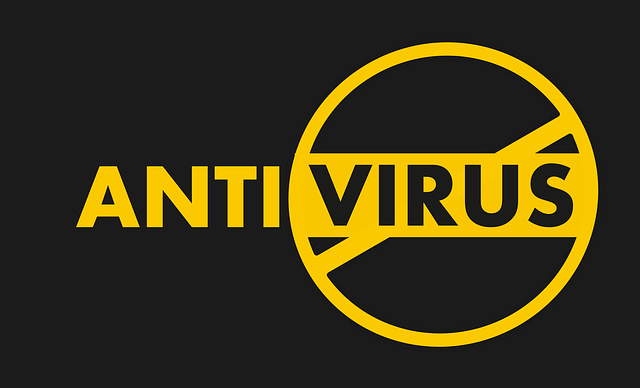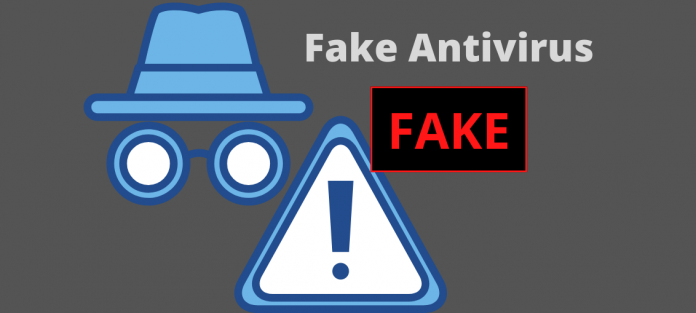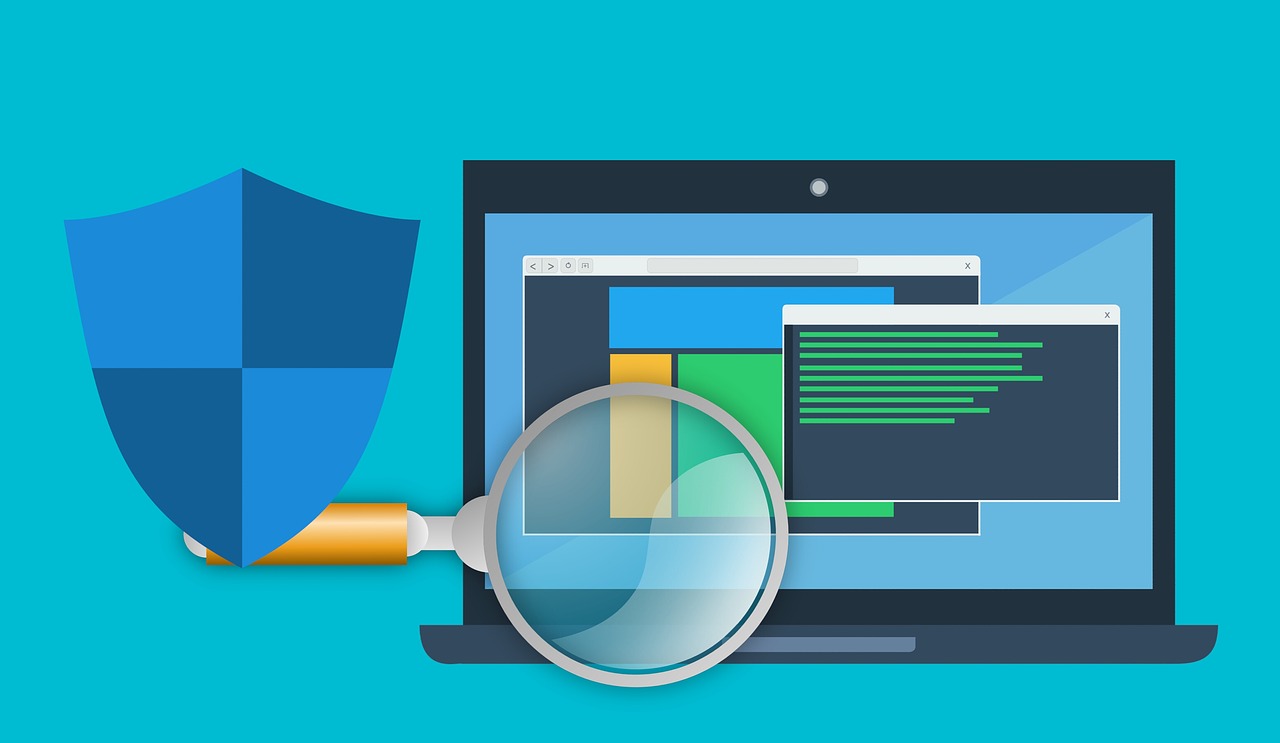Want to know what a fake antivirus means? Chances are you’ve heard a lot about antivirus software, but you don’t know about fake ones.
Antivirus software is a must-have for protecting your computer online and offline. This software helps you protect your computers from criminal attacks.
Cybercriminals have preyed on people’s inexperience as an avenue to execute their vicious attacks.
Today, these hackers have created the fastest-growing malware system – a fake antivirus program.
Sometimes, cybercriminals can overrun the algorithms of highly secured computers. They do this by playing on people’s ignorance, inviting the malware onto their computers.
Fake antivirus is also called rogue antivirus, or fake antivirus.
Many people are ignorant about malware, but you don’t have to be.
READ ALSO: How To Protect Your Computer From Malware
In this content, you will learn what a fake antivirus is.
Table of Contents
What Is A Fake Antivirus Program?
Fake antivirus software is a program that assumes usefulness to its users by claiming to detect or eradicate viruses and infections from a computer but wreaks havoc instead.
In other words, a fake antivirus program is a complete deceit. Because the program is purely deceitful, it can cause damage to a computer and its user in many ways.
For starters, the program does little or nothing for a user, making the computer more vulnerable to harm.
Most rogue antivirus programs have price tags, so if a person purchases such a service, it would be a total waste of money.
A fake antivirus program turns off the legit antispyware software. This way, the fake antivirus program becomes hard to disable.
In most cases, the fake program is malware, posing a great danger to the computer.
Fake antivirus software makes a user think their computer has a virus.

As soon as the user installs the fake antispyware program, the software will mimic a scan of the computer and show a report of different spyware or viruses detected in the system, which is false.
The fake report will make the computer look like it has some dangerous spyware.
Typically, a fake report will reveal several pop-up windows and infections while warning against more infections.
Often, these fake smitfraud programs display a Fix button and request payment. Some others may seal up a user’s data files and install different trojans or malware to oversee the user’s behavior.
Today, you don’t have to be a computer geek to know what computer viruses are. Computer viruses are more or less self-replicating programs that cause havoc in computer systems.
Rogue antivirus programs sometimes come with international headlines when large-scale attacks happen.
As a result, even computer experts can fall prey to malware cybercriminals’ devices.
But there’s good news! You can detect a fake antivirus program.
READ ALSO: Spyware Guide: The Invisible Intruder Lurking in Your Devices
How To Spot A Fake Antivirus Software

By now, you should know how crucial it is to have security software on your computers to stay safe from infections, malware, spam, viruses, and other vicious internet attacks.
Regrettably, cybercriminals also know how important it is to have protection in your computer system, and they prey on this knowledge to lure people into installing fake anti-spyware programs under the guise that this software will help their computers.
But we all know that these fake antivirus programs are out to do the reverse.
One persistent threat the internet is facing today is fake antivirus programs.
These vicious beasts pose as genuine malware protection, but on the contrary, they are out to do the opposite.
Rogue antivirus databases extort money from unknowing people under the guise of fixing their computers.
The fake antivirus software will often turn off your genuine security software, making it hard to remove.
Here are some features of fake antivirus programs that can help you spot them:
- They usually interrupt you while surfing the internet by showing a pop-up menu with claims that your computer may have different malicious threats.
- A rogue antivirus software usually comes with a phishing link so unknowing people can download and install the alleged security program.
When you click the link, it redirects you to a site that sells the rogue antivirus app. The link may also redirect you to scareware, an aggressive and compelling message that makes you click the message in it.
- You lose 2× more data, time, and money when you’re on their site because they run an infected operating system. So, conduct proper research before clicking on any suspicious link.
When you click on a phishing link in a pop-up window and input your credit card details for any purchase, the cybercriminals behind the scheme automatically access your financial data.
Now, these hackers will not only use your data to conduct identity theft, but you will become prey to malware.
Hence, being wary of fake anti-spyware pop-ups and phishing links would be best.
READ ALSO: Types Of Pop-ups Every eCommerce Store Should Have
How To Protect Yourself From A Fake Antivirus
You may be infected with malware if you often see pop-ups showing unusual security warnings and requests for your personal information or credit cards.
If you’re not sure whether an anti-spyware application is legit or take, use these steps below to protect yourself;
- Look for suspicious links in pop-up menus. If any aggressive or hyped-up message says your system is infected with a virus or that you have malware, tap the x icon in the top corner to exit the window.
- Messages of this nature usually contain phishing links that get your data without your consent.
- If you want to buy or renew software subscriptions directly, head to the official websites. Avoid visiting ad links or opening attachments from hidden senders.
- Monitor your credit cards for any suspicious and unauthorized activity.
- Use genuine and verified malware detection software.
- Use a legitimate security program installed on your computer to scan your device if you think it is infected with a malware threat.
Fake Antivirus: Frequently Asked Questions
Fake antivirus software, also known as rogue security software or scareware, seriously threatens your computer’s security. Here’s a breakdown of frequently asked questions to help you identify and avoid these deceptive programs:
What is the meaning of fake antivirus?
Fake antivirus are masqueraded as legitimate antivirus programs. These malicious programs display fake threat warnings and system scans to pressure users to purchase useless “protection” or install additional malware.
What happens if you download a fake antivirus?
Downloading a fake antivirus can have several detrimental consequences:
- Financial Loss: You might be tricked into paying for useless “protection” or subscriptions.
- Data Theft: Fake antivirus programs can steal sensitive passwords or credit card details.
- System Damage: These programs can install additional malware or disrupt your system’s functionality.
- Constant Pop-Ups: Fake antivirus software bombards users with constant pop-up warnings and notifications, hindering computer usage.
How do I know if my antivirus is legit?
HerAntiviruse ways to verify your antivirus software’s legitimacy:
- Check the Brand: Research reputable antivirus companies and compare their logos and program names with the ones installed on your system.
- Review System Resources: Genuine antivirus programs usually run discreetly in the background without causing significant performance slowdowns. It might be fake if your computer feels sluggish after installing an antivirus.
- Search Online Reviews: Look for reviews and ratings of your antivirus software. Trusted antivirus programs typically have positive user reviews.
What is a legit antivirus?
A legitimate antivirus program offers real-time protection against malware, viruses, and other online threats. Here are some key features of genuine antivirus software:
- Scheduled Scans: Performs regular scans to detect and remove malware.
- Automatic Updates: Regularly receive updates to stay protected against the latest threats.
- Firewall Protection: Provides additional protection against unauthorized access to your system.
- Reputable Brand: Comes from a well-known and trusted cybersecurity company.
What does a fake antivirus message look like?
Fake antivirus messages often employ scare tactics with:
- Urgent Language: They might use phrases like “critical system error” or “immediate action required” to pressure you into responding quickly without thinking critically.
- Fake Scan Results: They might display fabricated scans listing many nonexistent threats.
- Unappetizing Options: They might present you with limited choices, like “Upgrade Now” or “System at Risk!” to push you towards purchasing their fake protection.
How do I remove fake antivirus?
Removing a fAntivirusirus can be tricky. Here are some general steps, but it’s crucial to exercise caution:
- Safe Mode: Boot your computer into Safe Mode to turn off most startup programs, potentially including the fake antivirus.
- Control Panel: Use your Control Panel or Settings app and try to uninstall the program through the standard uninstall process.
- Anti-Malware Software: If uninstalling doesn’t work, consider using a trusted anti-malware program to scan and remove the fake antivirus. Be cautious when downloading new software, as some malware programs might disguise themselves as anti-malware solutions.
How do I get rid of fake viruses on my Android?
If you suspect a fake virus on your Android phone, don’t download any recommended “cleaning apps” from the pop-up message. These are likely part of the scam itself. Here’s what to do:
- Safe Mode: Boot your phone into safe mode. This disables third-party apps, making identifying and uninstalling the fake antivirus easier. Search online for instructions specific to your Android model.
- Uninstall the Fake App: Go to your phone’s settings and locate the app list. Find the suspicious app associated with the fake virus warnings and uninstall it.
- Scan with a Reputable Antivirus: Download a trusted antivirus app from the Google Play Store and run a full system scan.
Can phone viruses be fake?
Yes, absolutely. Fake viruses, often displayed through pop-up messages, are used by scammers to trick users into downloading useless or malicious software. These fake notifications might claim to have detected viruses or security threats that don’t exist.
Is there a fake McAfee antivirus?
Unfortunately, yes. Scammers often impersonate well-known antivirus companies like McAfee. Be cautious of unsolicited pop-up messages or phone calls claiming to be from McAfee and offering “urgent” security solutions.
Do some websites fake viruses?
Some malicious websites can display fake virus warnings as pop-ups. These pop-ups might pressure you to download software or call a fake support number. If you encounter such a pop-up, don’t click on anything within it. Simply close the window and navigate away from the website.
Here are some additional tips to avoid fake antivirus scams:
- Never install antivirus software from pop-up messages.
- Download security software only from trusted sources, such as the official app store for your phone or the website of a reputable antivirus company.
- Be wary of scare tactics. Legitimate antivirus software won’t bombard you with alarming pop-up messages.
- If you’re unsure, don’t hesitate to seek help. Consult a trusted tech-savvy friend or contact customer support for a genuine antivirus company.
Conclusion
Fake Antivirus is malware antiviruses themselves as the real deal. So you must be careful with the antivirus you install, such as the fake Antivirus.
If you suspect you have a fake antivirus, it’s best to seek help from a computer technician or contact the customer support of a reputable antivirus company for further guidance.
By understanding the tactics of fake antivirus programs and following these tips, you can protect yourself from falling victim to these deceptive schemes and safeguard your computer’s security.
Meanwhile, following the tips discussed in this article, you should be safe.
INTERESTING POSTS
- The Ultimate Antivirus Software Guide: What Is An Antivirus?
- Best Antivirus For 2023
- 5 Ways To Identify Phishing Or Fake Websites
- The Difference Between Antivirus and Anti-Spyware
- Macropay Scam Alert: Fake E-Commerce Sites
- How to Detect Fake Social Media Profiles
- Why Is Anti-Spy Software Important To My Online Security?
About the Author:
Chandra Palan is an Indian-born content writer, currently based in Australia with her husband and two kids. She is a passionate writer and has been writing for the past decade, covering topics ranging from technology, cybersecurity, data privacy and more. She currently works as a content writer for SecureBlitz.com, covering the latest cyber threats and trends. With her in-depth knowledge of the industry, she strives to deliver accurate and helpful advice to her readers.
Meet Angela Daniel, an esteemed cybersecurity expert and the Associate Editor at SecureBlitz. With a profound understanding of the digital security landscape, Angela is dedicated to sharing her wealth of knowledge with readers. Her insightful articles delve into the intricacies of cybersecurity, offering a beacon of understanding in the ever-evolving realm of online safety.
Angela's expertise is grounded in a passion for staying at the forefront of emerging threats and protective measures. Her commitment to empowering individuals and organizations with the tools and insights to safeguard their digital presence is unwavering.







